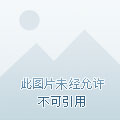The past does not forget the teacher of the future, taking history as a mirror, we can know the rise and fall. Nearly 80 years ago, when Japan launched a war of aggression against China, at this moment of national peril, some people went against the grain and did not hesitate to embark on the road of traitorism for their personal interests. However, there were still many benevolent people who threw their heads and spilled their blood and embarked on the road of resisting Japan and saving the country, some of whom charged into the front line and walked in the front line of the anti-Japanese resistance, and some of whom deciphered secret telegrams and provided intelligence for the anti-Japanese resistance, and Chi Buzhou was one of them.

Friends who love to watch TV dramas and books on the history of the war know that after the setback of Japan's "northward" battle plan in World War II, in order to seize more war resources, he adopted the "southward" combat plan, just before the plan to attack Pearl Harbor, there was a Chinese who was always paying attention to Japanese intelligence, Chi Buzhou found that the Japanese Ministry of Foreign Affairs to the Japanese Consulate in the United States secret telegrams abnormally increased, he stepped up deciphering work, after many studies and deciphering he found that the Japanese intelligence was mainly the number of ships in Pearl Harbor. Equipment and docking location and time.
In addition to this, he also had a very important intelligence that the Japanese Ministry of Foreign Affairs repeatedly asked Pearl Harbor which day had the largest number of ships, and learned that it was on Sunday, and on December 3, Chi Buzhou intercepted a very important special secret telegram, which mainly included three aspects: First, all kinds of confidential documents and code books were destroyed immediately. Second: Transfer as much of your deposits in the U.S. as possible. Third: The Imperial Japanese Government will take blitzkrieg operations under the Imperial Council.
From this, Chi Buzhou judged that the Japanese army would go to war against the United States and was about to attack Pearl Harbor, and he immediately presented the news to Chiang Kai-shek, who immediately informed US President Roosevelt of the situation. Unfortunately, the United States did not pay attention to this intelligence from China, and just 4 days after the news was sent, the pearl harbor incident that caused a sensation in the world occurred.
In addition to deciphering the Secret Telegram of the Japanese attack on Pearl Harbor, Ikebushu also deciphered the code, resulting in the assassination of isoroku Yamamoto, a famous general of the Imperial Japanese Navy. Ikebusu met his lifelong partner, Hideko Shirahama, while studying in Japan, and spent his later years in Japan, accompanied by a Japanese wife, until his death in Kobe, Japan in 2003, at the age of 96. After his death, in accordance with his last wishes, the ashes were brought back to China for burial.